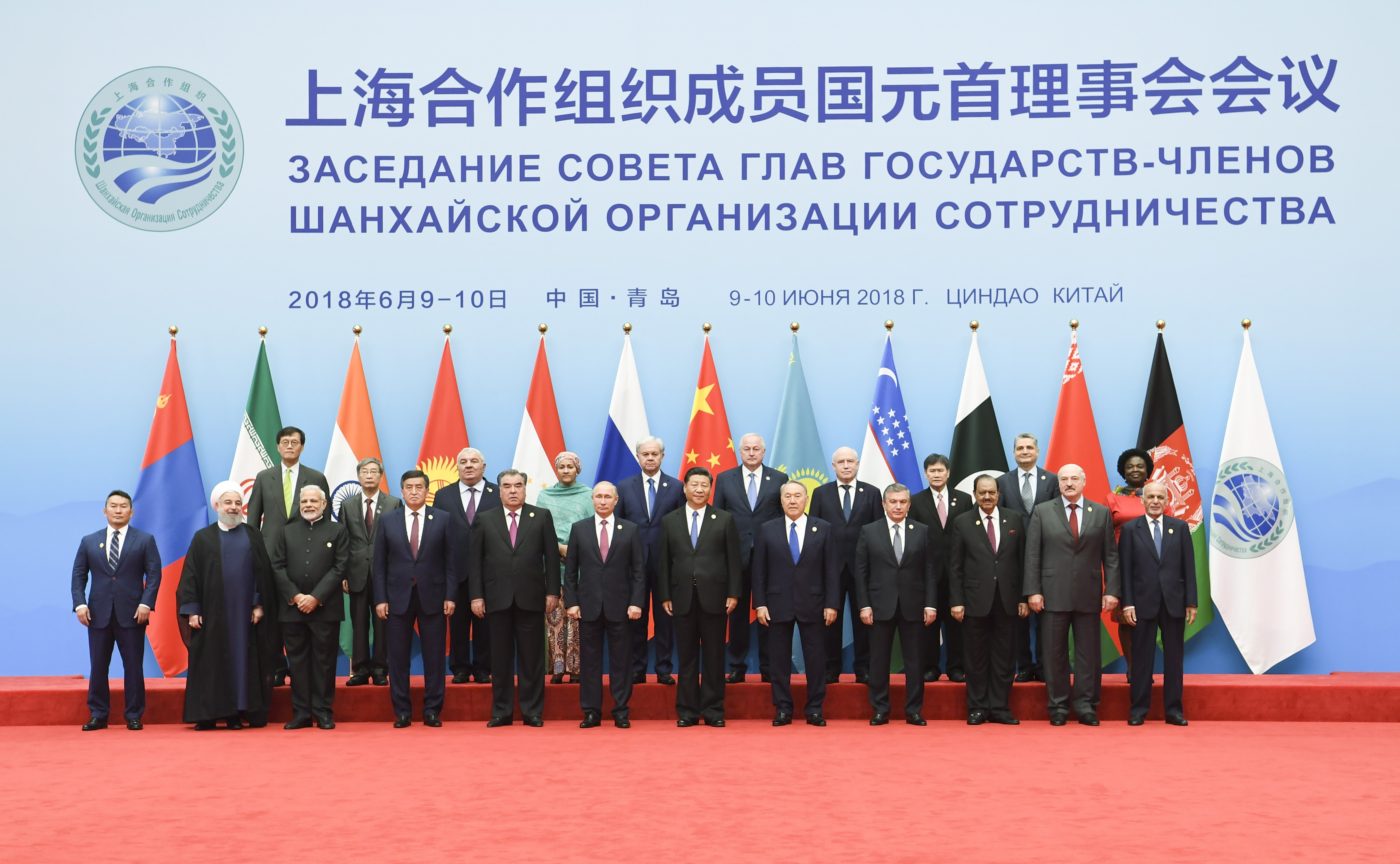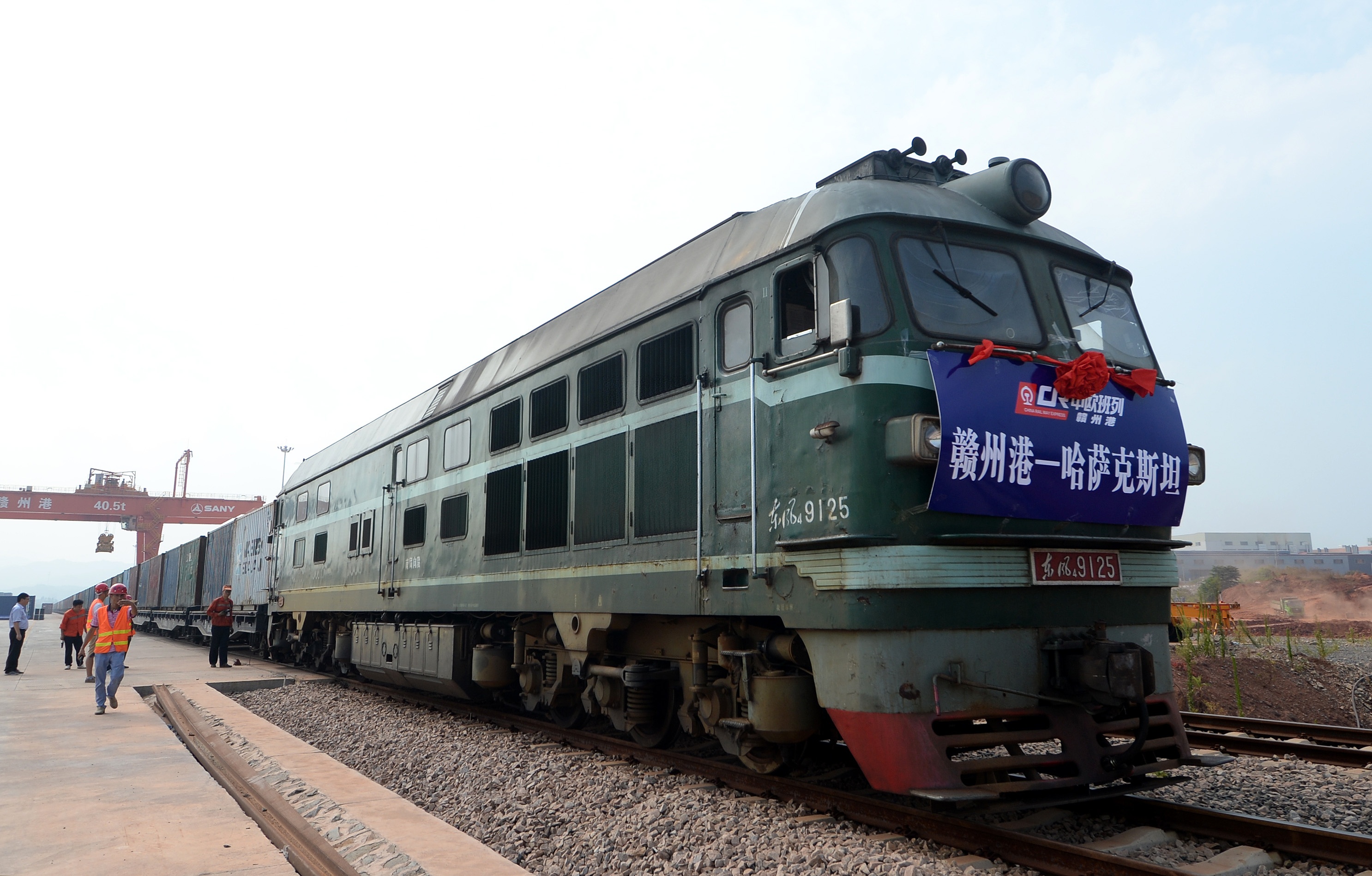SCO to continue spurring global growth
- By Gong Yingchun
 0 Comment(s)
0 Comment(s) Print
Print E-mail China.org.cn, June 13, 2018
E-mail China.org.cn, June 13, 2018

The 18th Meeting of the Council of Heads of Member States of the Shanghai Cooperation Organization was held from June 9-10 in the Chinese coastal city Qingdao. This was the first meeting after India and Pakistan joined the organization as full members last year. During the summit, the SCO member countries achieved consensus on economic cooperation and agreed to carry forward the "Shanghai Spirit," featuring mutual trust and benefit, equality, consultation, respect for diversity of civilizations and pursuit of common development.
At a joint press conference of the Qingdao Summit on June 10, Chinese President Xi Jinping commented that all SCO parties "will continue to work in line with the principle of mutual benefit to improve regional economic cooperation arrangements, enhance the Belt and Road cooperation and complementarity of their respective development strategies, deepen cooperation in business, investment, finance, connectivity and agriculture, advance trade and investment facilitation".
Looking back over the past 17 years, we can see that economic cooperation, as one of the three pillars of the SCO, has yielded a number of fruitful outcomes within the region.
Closer trade ties
Official data show that the combined GDP of the SCO's six founding members – China, Russia, Kazakhstan, Kyrgyzstan, Tajikistan and Uzbekistan – reached US$12.63 trillion in 2017, more than a seven-fold increase since 2001. Their total trade volume in 2001 was US$672 billion, which jumped to US$4.9 trillion in 2017 and increased even further following the addition of India and Pakistan to the organization.
China in particular has played an important role in promoting regional trade since taking the rotating chair last year. According to data released by the Ministry of Commerce, trade volume between China and other SCO members hit US$217.6 billion in 2017, increasing by 19 percent year-on-year, as well as jumping an additional 20.7 percent in the first quarter of 2018. Additionally, China has become the largest trade partner of Russia, Kyrgyzstan, India and Pakistan, and the second-largest partner of Kazakhstan, Uzbekistan and Tajikistan.
Progress in regional investment
The total volume of foreign direct investment inflow of the SCO's six founding members in 2017 increased from about US$6.36 million in 2003 to US$178.77 trillion. China's cumulative investment in other SCO member states hit US$84 billion as of the end of March this year, with steady progress made in many large-scale projects in energy, mine and the manufacturing industry.
Moreover, China has become the largest source of foreign investment in Uzbekistan, Kyrgyzstan and Tajikistan; and the fourth-largest source in Russia and Kazakhstan. The expansion of investment cooperation has further deepened regional economic ties.
Achievements in connectivity
During the SCO's 15th meeting of the Council of Heads of State of the Member States, held in Ufa, Russia, in July 2015, President Xi proposed that China would push for the completion of 4,000 kilometers of railway and over 10,000 kilometers of highway within the SCO region in a few years.

With the joint efforts of the SCO members, remarkable achievements in connectivity have been made since 2017. A complex initial infrastructure network, including roads, railways, oil, gas and communications, has been formed within the region, further strengthening economic ties among the members.
The SCO Intergovernmental Agreement on Creating Beneficial Conditions for International Road Transportation took effect in January 2017, and a series of projects have since been completed, such as the China-Kyrgyzstan-Uzbekistan road, the China-Central Asia natural gas pipeline and the China-Kazakhstan and China-Russia crude oil pipelines, as well as efficient operation of the China-Europe freight train services.
Capital support and currency exchange
Expanding financial cooperation among the SCO countries is crucial to ensure capital for future projects and promote implementation. SCO members have established closer financial ties through conferences of SCO finance ministers, governors of central banks and the SCO Inter-bank Consortium. The People's Bank of China has signed bilateral currency exchange deals with several SCO members and regions.
Figures show that the value of these currency swap agreements signed with Russia, Kazakhstan, Kyrgyzstan, Tajikistan and Uzbekistan hit 160 billion yuan as of the end of 2016, providing major capital support for regional cooperation.
Moreover, direct cash exchanges between Chinese yuan and Kazakhstan tenge have been made available, and Chinese yuan can be traded at Kazakhstan's stock market, further extending China's investment in its neighbor countries.
President Xi announced on June 10 at the Qingdao Summit that China will set up a special lending facility equivalent to 30 billion yuan within the framework of the SCO Inter-bank Consortium. This move will provide capital support for infrastructure construction within the SCO, will promote economic ties among China and the countries along the Belt and Road, and will bring new opportunities for the internationalization of the Chinese yuan.
In closing, the significant achievements of economic cooperation within the SCO have revealed its member states' common desire for development and shared willingness to cooperate. Moreover, the productive outcomes since 2017 also show the important role China has played as the rotating chair. Following the Qingdao Summit, the SCO will continue to embrace the "Shanghai Spirit" and will foster new opportunities for integrated development in the region to benefit its people and drive global growth.





